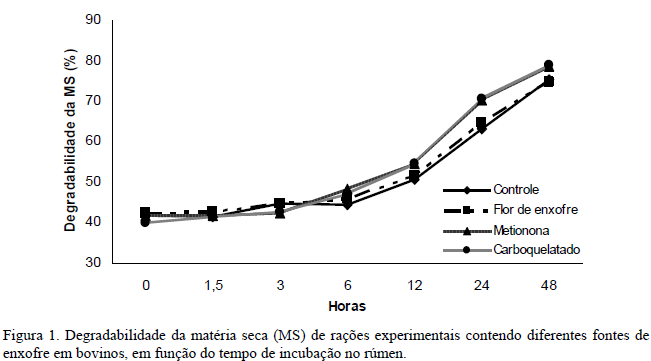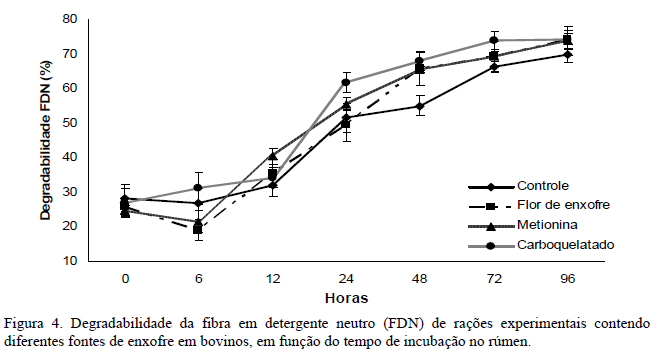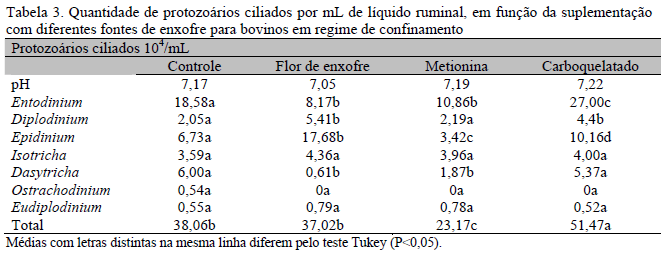This research was carried out at FZEA/USP to compare the effects of different sulphur sources in diets of Nellore cattle on ruminal parameters. Eight steers were rumen cannulated and submitted to four treatments, using the following sulphur sources: control (no supplement), elemental sulphur, methionine, and carboquelated. Animals were fed a total ration using sugarcane as the roughage. The proportion roughage:concentrate was 40:60. The experimental period lasted 76 days, divided in four 19-days sub-periods. The first 14 days of each sub-period were used to adapt the animals to the diet and the last five days to collect the samples. During the sample period, ruminal liquid was sampled to protozoa count and pH determination. Also, nylon bags were incubated in rumen to determinate the degradability of dietary dry matter, crude protein, and acid and neutral detergent fiber. Treatments did not affect dietary dry matter, crude protein, acid and neutral detergent fiber degradability, and the ruminal pH. However, carboquelated provided the higher total amount of ciliate protozoa and methionine provided the lowest values. Carboquelated can be a good alternative to supplement sulphur to bovines in a feedlot.
feedlot; minerals; nutrition; ruminal degradability; sulphur







